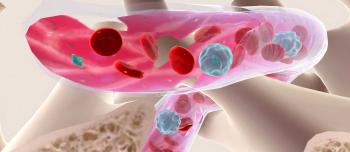Spark Therapeutics and Pfizer Inc. have announced updated preliminary data from the first nine participants in an ongoing Phase 1/2 clinical trial of SPK-9001, the company’s investigational hemophilia B gene therapy. These data were presented at the 58th American Society of Hematology Annual Meeting in San Diego, CA, on December 4, 2016, during a Plenary Scientific Session.
Spark is developing SPK-9001 in collaboration with Pfizer Inc., as part of the SPK-FIX program. SPK-FIX was established in December 2014 with the goal of developing and commercializing novel gene therapy-based treatments for hemophilia B using the company’s bioengineered adeno-associated viruses (AAVs). Spark’s proprietary AAVs are delivery vehicles, or vectors, that carry the genetic codes that prompt the production of the factor IX (FIX) protein that is deficient in individuals with hemophilia B. Ideally, AAVs deliver the genetic material into living cells via a single injection into the liver, to sustain therapeutic effect without causing disease or triggering significant immune responses.
According to a Spark press release, the first participant to have been monitored for one year after receiving a single administration of SPK-9001 has reduced his number of FIX infusions to 0 and has had no bleeds. In contrast, during the previous year he received 98 prophylactic infusions of FIX and had four breakthrough bleeds. As of November 30, 2016, his “steady-state” FIX activity level was 33% of normal.
Also as of November 30th, the total FIX product consumption in all nine enrolled participants over a cumulative 1,650 patient days following SPK-9001 administration was reduced by 1.13 million international units based on their FIX usage in the preceding year. Seven of the nine infused participants, who have progressed to at least 12 weeks post-SPK-9001 administration, experienced consistent and sustained FIX activity levels, with a mean steady-state level greater than 28%. Investigators have also reported that no participants have developed FIX inhibitors or experienced thrombotic events to date. Further, there have been no reports of serious adverse events.
While two participants received the gene therapy too recently to be evaluated, six of the remaining seven reported increased physical activity and enhanced quality of life based on the “Haemophilia Quality of Life Questionnaire for Adults,” a validated instrument that measures health-related quality of life in adults.
“Giving people living with hemophilia B treatment options that potentially minimize or eliminate the need for infusions of factor concentrates is one of the main goals of conducting clinical studies of investigational gene therapies,” said Katherine A. High, MD, president and chief scientific officer at Spark Therapeutics. “While continued observation and larger cohorts are needed, these updated preliminary data continue to be encouraging and suggest the potential of investigational SPK-9001 to deliver a consistent, sustained and therapeutically meaningful level of factor IX activity through a one-time intravenous administration.”
Source: Spark press release dated December 3, 2016





